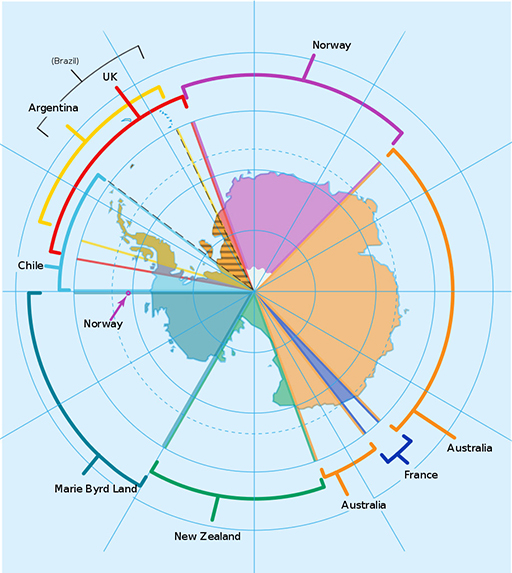3.3 Paradigm wars?
Nathaniel Gage (2007), in his chapter ‘The paradigm wars and their aftermath’, chose 1989 to reflect on paradigmatic positions in educational enquiry because, in that year, there was an ‘International Conference on Alternative Paradigms for Inquiry’ in the USA. At the conference, more than 200 participants debated paradigm issues and the debates were ‘characterized by jockeying for position and the carving out of territory’ (Gage, 2007, p. 164). Gage summarises critiques of the scientific, or positivist, approach that emerged in these debates. He labels the first the ‘antinaturalist critique’ and the second the ‘interpretivist critique’.

In Activity 10, you will read more about these critiques and the debate. It is worth noting that reference to the scientific method in this debate refers to scientific study of the natural world, hence natural science or naturalist. Gage’s reference to ‘antinaturalism’ is therefore directly against this perspective.
Activity 10 An alternative paradigm
Part 1
The following summarises the antinaturalist critique presented by Nathaniel Gage for the failure of positivist-based research on teaching. Make notes on whether you think the basis of their critique is:
- ontological (the view of the world);
- epistemological (the view of how to come to know the world); or
- or methodological (the view of which approaches to use to study the world).
The antinaturalist position is that human affairs simply cannot be studied with the scientific methods used to study the natural world. Thus, they argue the term ‘social science’ has two ideas which cannot be combined and hence is an oxymoron. The reasons given are:
Human affairs are inextricably involved with the intentions, goals, and purposes that give them meaning.
A science is involved with direct, one-way causal links, but there are no such ‘billiard-ball’ causal connections between teacher behaviour and student learning or adult behaviour and a child’s development.
Scientific methods can be applied only to natural phenomena that are stable and uniform across time, space, and context in a way obviously untrue of the spheres of education and children and young people’s experiences and development.
Therefore, the critics assert, in teaching you should not search for the kind of prediction and control that scientific method aims for but rather for the kind of insight that historians, moral philosophers, novelists, artists, and literary critics can provide.
As evidence to support this view, Gage refers to Tom’s (1984) description of teacher planning, though what he writes is also true of the day-to-day experience of youth workers or childcare workers, for example:
the teacher may change objectives from month to month or from week to week; unforeseen events – a hot day or one student’s open cruelty to another – may necessitate revising plans; the demands people place on the schools can change from year to year, from community to community … so that the teacher cannot necessarily construct his battle plan in 1984 for 1985, in September for May, on Monday for Friday, or during the second hour for the third hour.
Part 2
Nathaniel Gage (2007) also presented an interpretivist critique by another group of researchers who challenged the use of positivism in educational enquiry.
Again, be prepared to consider the basis for the argument and how this differs from an antinaturalistic critique of positivism.
Interpretivist researchers reject positivist views of the world because:
They reject the assumption of uniformity in nature – the assumption that phenomena would occur in the same way in different places and times.
They reject the use of linear causal models applied to behavioural variables as a basis for inferring causal relations among the variables. These models presuppose fixed and obvious meanings of certain types of actions for example by teachers or adults.
They reject that the kinds of prediction and control that can be achieved in the natural sciences are not possible in human affairs.
They propose a phenomenological perspective [one which examines particular phenomena - events or situations which can be observed to exist or happen] or needs to be taken to understand human behaviour which allows for the situation that different interpretations of the world are held by different people which create the possibility that people may differ in their responses to the same or similar situations.
Gage talks about his suggested response to this realisation.
… So it [positivistic research] ought to be supplanted by interpretive research … which would examine the conditions of meaning created by students and teachers as a basis for explaining differences among students in their achievement and morale.
Part 3
Note any similarities between the two critiques and then consider any differences.
How do you view these criticisms? Are they ontological, epistemological or methodological in nature?
Discussion
It might be important to note that Gage is discussing the situation in the USA particularly, but the paradigm debates he describes were ongoing in many other countries. The antinaturalist argument is that there is no one-way causal link between teachers and their students. This criticism applies to any learning relationship where one person is trying to support and guide another. Interpretivists argue that human behaviour and ways of knowing are context dependent or situated. They reject the notion of stability across contexts, which underpin certain theories of knowledge and of learning and assessment practices and policies discussed earlier in the course. You can see links between some ontological and epistemological theories behind educational and childhood-focused policies and practices and positivist assumptions.
The epistemological stance of interpretivism is clearly articulated in Gage’s discussion when he comments that individuals are understood to construct their own social reality, rather than having reality external to individuals as the ‘determiner of the individual’s perception’ (Gage, 2007, p. 153). This distances interpretivists from ontological positions which see learners as passive receivers, and from epistemological positions where what we know and how we know is governed by an external objective reality that is somehow transmitted and received by individuals.
Both of the critiques outlined by Gage in his chapter – the antinaturalist and the interpretivist critiques – can be regarded as being derived from the same source. Importantly, the interpretivist epistemological perspective denies that symbols carry meaning; rather, symbols are interpreted and meanings, as a consequence, are multiple. This altered, ontologically, what was paid attention to in educational enquiry and in particular the direction taken by childhood and youth researchers.
In the next section you will look more closely at interpretivism to help you continue to consider the paradigmatic debate.
